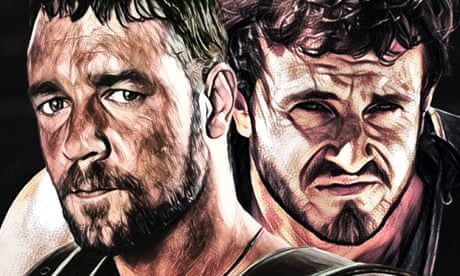
Paul Mescal’s thoughtful Lucius is worlds away from Russell Crowe’s stony Maximus, 24 years ago. Why have our masculine ideals changed so much?
Maybe it’s because Paul Mescal in Gladiator II is younger than Russell Crowe was in the original (Mescal was 27 and Crowe was 35 during filming). Or maybe it’s because Mescal has a wry, sunny energy, and Crowe something more like the bright red character in Inside Out (what’s his name again? Oh yes, Anger)? It’s something, anyway, because the two films, both directed by Ridley Scott, give us two different versions of masculinity – not just in terms of the actors’ vibes, but how they deal with women, geopolitics and battle. And also how they see humour and sexuality. So what has changed for men in the 24 years between each release?
It’s impossible to overstate how much impact Crowe had when the first film was released in 2000. We used to talk about it at the level of the sentence. I lost an awesome amount of time arguing over a line in the opening sequence, where Crowe says, “At my signal, unleash hell.” Did he mean let loose the demons of soldiery? Or was his dog called Hell, and he wanted him off the lead so he could run about in a helpful way?
Continue reading...